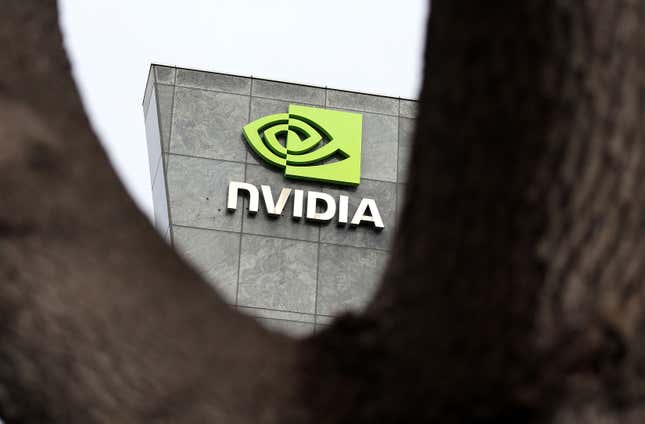
After weeks of leveraging the generative artificial intelligence boom to greater and greater heights, Nvidia is being sued by authors over training for its NeMo AI platform. Authors Brian Keene, Abdi Nazemian, and Stewart O’Nan filed their proposed class action lawsuit in federal district court in California on Friday. They allege that their works were part of a dataset of nearly 197,000 books that helped train NeMo to generate ordinary written language.
Part of the collection of works NeMo was trained on included a dataset of books from Bibliotik, a so-called “shadow library” that hosts and distributes unlicensed copyrighted material. That dataset was available until October 2023, when it was listed as defunct and “no longer accessible due to reported copyright infringement.”
The dataset included at least one published work from each author, according to the lawsuit — Keene’s Ghost Walk, Nazemian’s Like a Love Story, and O’Nan’s Last Night at the Lobster.
The authors claim that the takedown is essentially Nvidia’s concession that it trained its NeMo models on the dataset, thereby infringing on their copyrights. They are seeking unspecified damages for people in the U.S. whose copyrighted works have been used to train Nemo’s large language models within the past three years.
“We respect the rights of all content creators and believe we created NeMo in full compliance with copyright law,” a Nvidia spokesperson said.
Nvidia stock dropped almost 2% in Monday morning trading after closing down 5.6% on Friday. Even with those losses, shares have increased by almost 273% over the past 12 months, and the company is still valued well above Amazon and Google parent Alphabet.
The tech giant is joining the ranks of several other AI-focused companies that have been sued for allegedly copying licensed material without permission.
OpenAI, the Sam Altman-led and Microsoft-backed startup behind ChatGPT, has been sued by several authors and news outlets, including The New York Times. Fellow chatbot maker Anthropic has been sued by Universal Music Group, while visual artists have sued Midjourney and Stability AI.